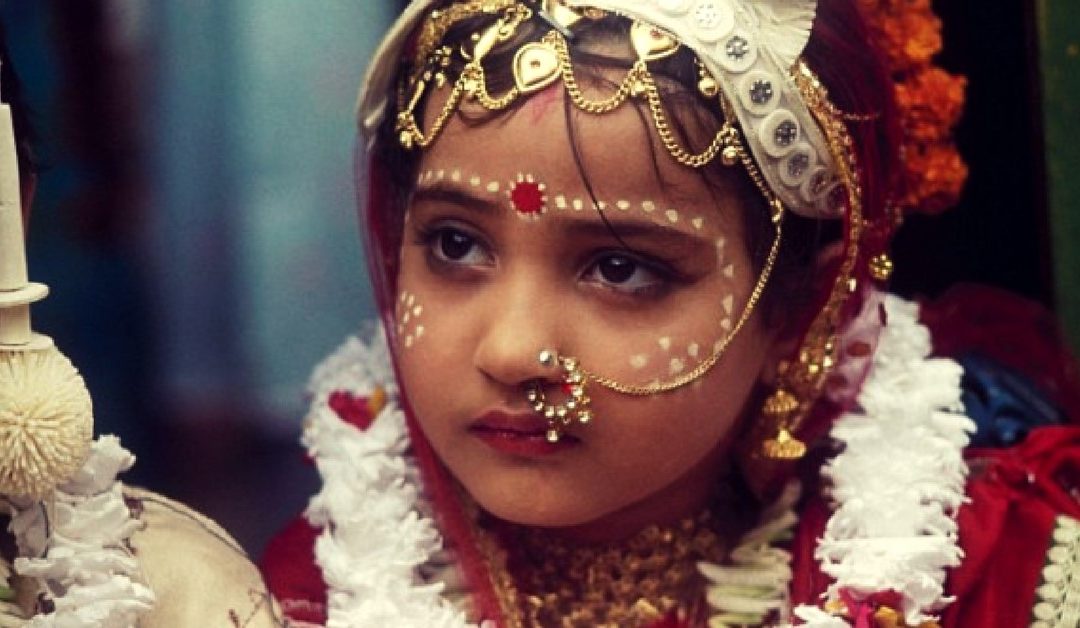India in today’s day and age, where the world has advanced rapidly continues to see social practices such as child marriage. Despite the best efforts of the Government aided by institutions and social workers, child marriage continues to be prevalent in India.
Marriage of an underage child to an adult or another child is termed as Child Marriage. Under the Indian laws, a marriage is allowed if the male is 21 and above and the female is 18 and above. Child Marriage is considered as a fundamental violation of human rights and civilization having adverse effects on the child’s physical, mental, and emotional health.
Child Marriages are prevalent in huge numbers in rural areas when compared to the urban cities. The repeated practice of Child Marriage in Indian society is due to poverty, lack of awareness, gender inequality, societal norms, safety concerns about girls, etc. Lack of proper guidance often push families into getting their children married at a young age. This results in early pregnancies, excessive financial burden, mental and physical distress.
LEGAL FRAMEWORK
To curb the evil of Child Marriage, the Indian Government had passed several legislations over the years, such as:
- TheChild Marriage Restraint Act, 1929, also called as the Sarda Act, was enacted to restrict the practice of child marriage. The law set the legal age of majority for marriage for both boys and girls along with prescribing necessary punishments. The Sarda Act also provided for the elimination of potential dangers to the life and health of female children, who are unable to take the stress and strains of married life and avoid early death. The Sarda Act was replaced by the Prohibition of Child Marriage Act, 2006.
- The Prohibition of Child Marriage (Amendment) Bill, 2021was passed by the Rajya Sabha in December 2021 to raise the legal age of marriage for women from 18 years to 21 years.
Child Marriages pose threats in various forms such as decline in reproductive health, early maternal deaths, malnutrition in infants born out of child marriages, miscarriages, stillbirths, etc. Statistically, 49 percentage of minor brides from remote parts of India often experience domestic violence in their maternal homes. This is directly related to the lack of awareness of their rights. Young girls from such remote areas undergo sexual abuse and post-traumatic stress as they completely lack recourse to legal help.
The Indian Government has initiated several preventive programs to save children, especially young girls from the bondage of Child Marriages. Some of these are as follows:
- Apni Beti, Apna Dhan (ABAD), meaning – “My daughter, My wealth” launched in 1994 was India’s first conditional cash transfer program dedicated to delay the marriages of young girls across the Indian nation. As part of this program, a girl child would be eligible, if she is not married off before attaining the legal marriageable age, to receive a certain amount of money, as declared by the Indian Government.
- Girls Advocacy Alliance Program, initiated in 2016 in the States of Telangana and Andhra Pradesh to address the gender based violence in the form of child marriages, and trafficking. This Program promotes secondary education and job oriented vocational training to young girls to provide them with equal opportunities for their futures.
India has had a long battle in curbing several social issues since the British colonial era. Social workers such as Raja Ram Mohan Roy, Vinobha Bhave, Jyoti Bapule, etc. have always strived to see India in a brighter light by providing equal opportunities to each gender. Despite this, there are areas so remote across India where children do not see the way to enrich their lives due to lack of attentiveness from the Government bodies.
The Child Foundation, as a team of educated and mindful citizens will work towards contributing awareness that Child Marriage is an offence under the law and that no child is bound to marry before he/she attains the marriageable age.
